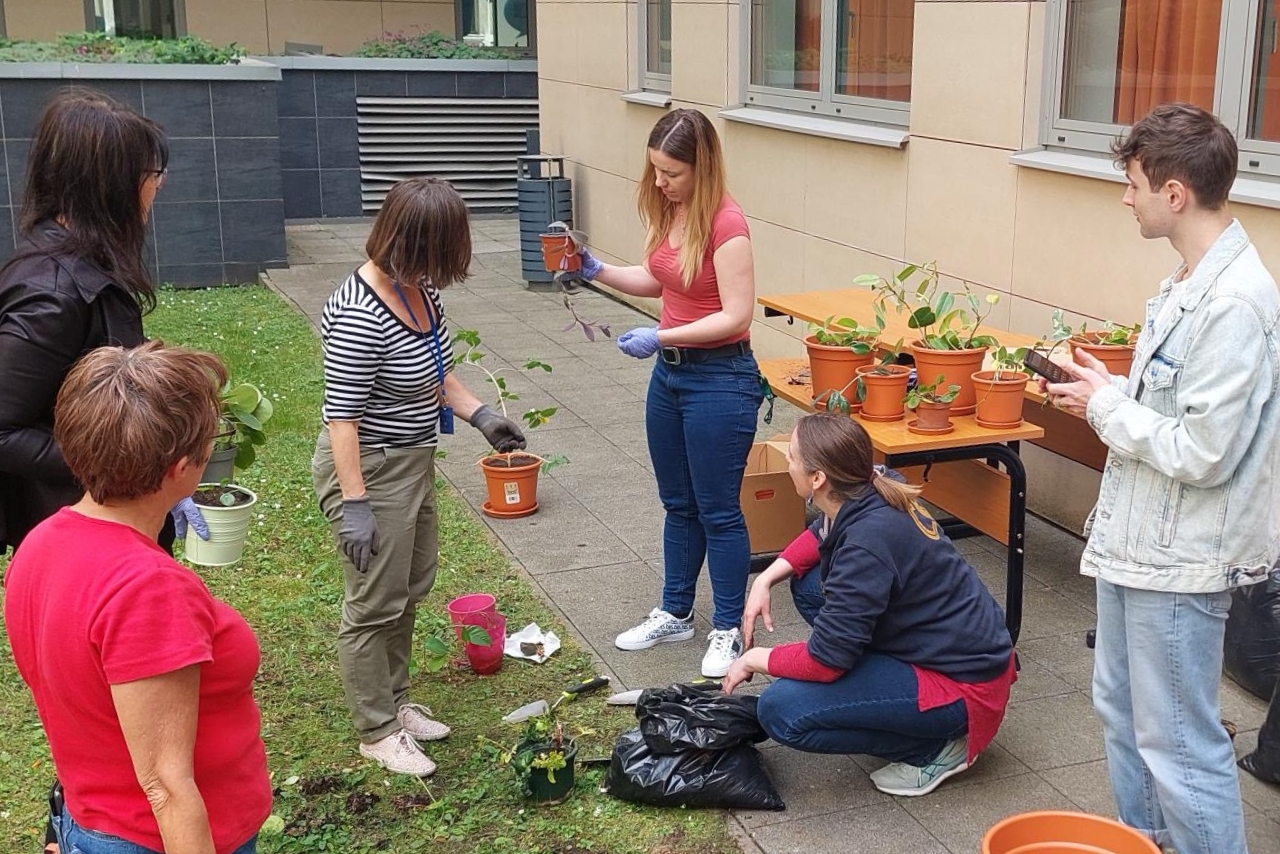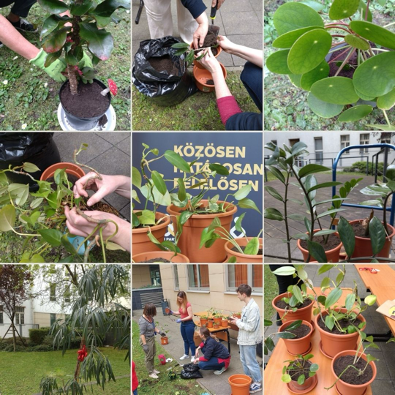Colleagues planted office plants in sustainable compost at a community event

We organised a community planting event as part of the Corvinus Green project, where colleagues worked together to transplant office plants into more sustainable compost. In addition to planting, the aim was also to discuss how we can make the university and our environment more sustainable. The event was also an opportunity to learn about the Science Shop’s LOESS research project on soil health.
In addition to the social experience, there was also knowledge-sharing among colleagues. For example, there were plants whose names were identified together, and more experienced gardeners also shared their planting practices. We even exchanged plants, and the transplanting of seedlings increased the plant population. This is a good example of why it’s worth taking action as well as planning, and in the process, you can experience, learn and further shape sustainability.

Finally, here are three reasons why compost is more sustainable than traditional potting soil:
♻️ The good quality compost purchased from the composting facility was made from organic material taken from the municipalities, contributing to a circular economic model.
🌿 It does not contain fertilizers and other added chemicals. It is also peat-free, which contributes to reducing the carbon footprint and conserving habitats.
📦 We will reuse the bags used for transport next time, so we can also reduce the amount of packaging waste.
The programme is also part of the May Sustainability Theme of the Month project, which focuses on community action. Details of the project and other activities can be found here.
Written by: Máté Kovács
*Editor’s note: This material is also called “organic waste”, but there is no waste in nature. This organic material is a treasure because it is the source of new life. The best thing to do is to leave it in the garden, but if it has already been transported, it is important to be reused effectively.